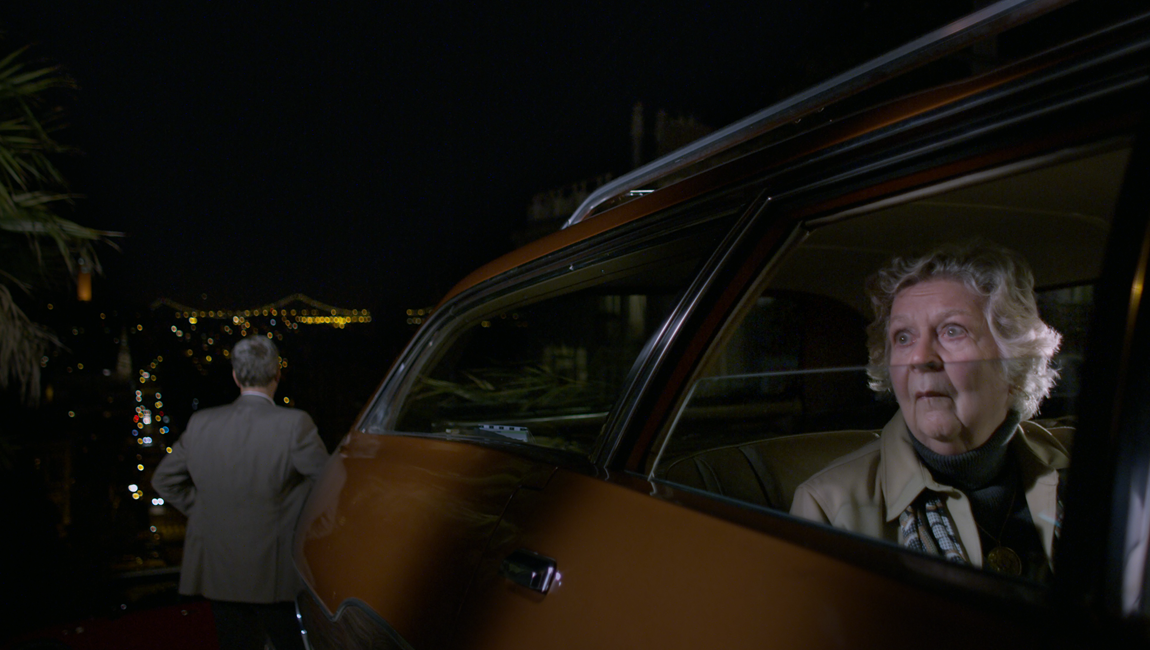“There comes a time when the only way you can make a statement is to pick up a gun.” When Sara Jane Moore attempted and failed to kill President Gerald Ford on September 22, 1975, she did so to express a deep disaffection with the United States. Years of proximity to radical leftist political activism had revealed to her that the America she’d experienced as a white Southern woman was not the America that everybody experienced, particularly the marginalized. All signs — from an unelected president and vice-president running the show to a rapacious, underhanded foreign policy approach wreaking havoc abroad — pointed to a country that had lost its way; or more precisely, had its way hijacked by a cabal of power brokers uninterested in ever relinquishing the reins. To illustrate the absurdity of an empire peacocking as a benevolent beacon of democracy, of ordering assassinations and coups yet denigrating similar violence being done against it, Moore woke up one morning, got herself a gun, and prepared to make a statement in the starkest terms she knew how.
This, however, is merely a theory about her motive. Because the fascinating and frustrating thing about Robinson Devor’s ambitious documentary Suburban Fury is that, for a film so intimately tied to the perspective of one person, Sara Jane Moore remains remarkably hard to pin down. The title could even be argued to be a misnomer. It implies an expression of rage arising from a festering discontent amplified by suburbia’s suffocating domestic trappings, yet the film operates with a scope that reveals a more multifaceted angle of exploration. Through one woman, Devor and crew strive to tell the story of the 1970s — a decade historians have been increasingly referring to as a “pivot of change” — arguing that the person is indeed political.
The first line of text lays out that Moore will be the only person interviewed. Quotations that will be attributed to other people are drawn entirely from her own recollection. She’s a well-chosen subject for such a solipsistic setup. Frank, funny, and occasionally brash, Moore headlines her own one-woman show, a dream come true for someone whose photos from their time at Lee Strasberg’s Actors Studio suggest a desire for stardom. Her ability to perform is what made her such an effective FBI informant, passing along information on various political organizations. Her ability to perform also makes her tough to parse. When toward the film’s start she talks about people’s varying presentations of self, you begin to question how real Moore is being in these interviews. She doesn’t come off as a pathological liar, but rather deeply image-conscious, someone who knows how to spin the truth, who knows when to leave a thread hanging with an allusion. Couple this with the firm boundaries she sets regarding what she will and won’t discuss, and you’re left with this entertaining, inscrutable lady whose moral ambiguity the filmmakers play up by infusing Suburban Fury with a bit of a noirish and true-crime vibe. Given the time we spend with Moore, it never feels like we too often get a true peak behind the curtain. The lack of fuller insight into what makes her tick lessens her strength as the film’s linchpin. Over time, her imposed limitations make it clear the story will have to settle for a degree of superficiality, and the spell she casts does weaken accordingly.
Moore is our imperfect gateway into politically tumultuous times. The Attica Prison Rebellion, antiwar protests, abortion rights fights, armed Indigenous rights activists, militant labor organizers, the Black Panthers: Suburban Fury steadily builds a collage depicting an America engaged in an ideological civil war. The soul of the country, what it stands for and who it fully includes, is what’s at stake. We see that those in charge and those in the state working on their masters’ behalf will go to great lengths to quench any revolutionary fires. The point the film is making isn’t new, but it is provocatively communicated thanks to the film’s greatest strength — its bevy of archival material. The filmmakers flesh out a gripping sense of time and place with as much media as they can get their hands on, from headlines to news broadcasts to security footage. The sum of these parts is a sociopolitical landscape that feels inherently nefarious. Instead of complete access to Moore’s rationale for her infamous actions, we’re left with a strong intuition about her reasoning through seeing an America deserving retribution. While never striking bedrock tonally or thematically, Suburban Fury still has the scattershot breadth and genre intrigue to give it some sticking power after the credits roll.
Published as part of NYFF 2024 — Dispatch 4.







